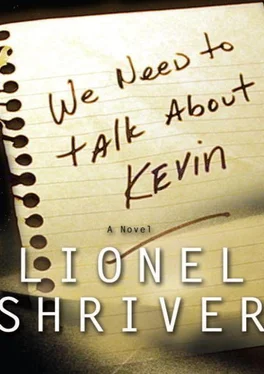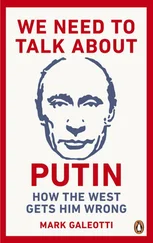“Like fuck, ” he said, meeting my eyes. “She says, like, That was a fucking good performance , or she’ll direct some guy, Look at her like you really want to fuck her, like you want to fuck her till she squeals like a pig .”
“Little out there, Eva,” you said, eyebrows raised.
“What does she look like?” I said.
“She’s got big, uh,” he mimed honeydews, “and a really wide,” this time he couldn’t contain the grin, “like, a huge butt. She’s old and everything. Sort of a hag, basically.”
“Is she a good teacher?” I said.
“She’s sure into it anyway.”
“Into it how?” you said.
“She’s always trying to get us to stay after school and practice our scenes with her. Most teachers just want to go home, you know? Not Pagorski. She can’t get enough.”
“Some teachers,” I said sharply, “are very passionate about their work.”
“That’s what she is,” said Kevin. “Real, real passionate .”
“Sounds like she’s a little bohemian,” you said, “or a bit of a loon. That’s all right. But other things aren’t all right. So we need to know. Has she ever touched you. In a flirtatious way. Or—below the waist. In any way that made you uncomfortable.”
The squirming became extravagant, and he scratched his bare midriff as if it didn’t really itch. “Depends on what you mean by uncomfortable , I guess.”
You looked alarmed. “Son, it’s just us here. But this is a big deal, all right? We have to know if anything—happened.”
“Look,” he said bashfully. “No offense, Mumsey, but would you mind? I’d rather talk to Dad in private.”
Frankly, I minded very much. If I was going to be asked to trust this story, I wanted to hear it myself. But there was nothing for it but to excuse myself to the kitchen and fret.
Fifteen minutes later, you were steamed. I poured you a glass of wine, but you couldn’t sit down. “Tell you what, Eva, this woman went beyond the pale,” you murmured urgently, and gave me the lowdown.
“Are you going to report this?”
“Bet your life I’m going to report this. That teacher should be fired. Hell, she should be arrested. He’s underage.”
“Do you—do you want to go in together?” I’d been about to ask instead, Do you believe him? but I didn’t bother.
I left turning state’s evidence to you, while I volunteered to meet Dana Rocco, Kevin’s English teacher, for a routine parent-teacher conference.
Whisking out of Ms. Rocco’s classroom at 4 P.M., Mary Woolford passed me in the hallway with barely a nod; her daughter was no academic bright spark, and she looked, if this was not merely a permanent condition, put out. When I entered, Ms. Rocco had that having-just-taken-a-deep-breath expression, as if drawing on inner resources. But she recovered readily enough, and her handclasp was warm.
“I’ve been looking forward to meeting you,” she said, firm rather than gushy. “Your son’s quite an enigma to me, and I’ve been hoping you could help me crack the code.”
“I’m afraid I rely on his teachers to explain the mystery to me ,” I said with a wan smile, assuming the hot seat by her desk.
“Though I doubt they’ve been enlightening.”
“Kevin turns in his homework. He isn’t a truant. He doesn’t, as far as anyone knows, take knives to school. That’s all his teachers have ever cared to know.”
“I’m afraid that most teachers here have nearly 100 students—”
“I’m sorry, I didn’t mean to be critical. You’re spread so thin that I’m impressed you’ve even learned his name.”
“Oh, I noticed Kevin right away—.” She seemed about to say more, and stopped. She placed a pencil eraser on her bottom lip. A slim, attractive woman in her mid-forties, she had decisive features that tended to set in an implacable expression, her mouth faintly pressed. Yet if she exuded an air of restraint, her reserve did not seem natural but learned, perhaps by expensive trial and error.
It wasn’t an easy time to be a schoolteacher, if it ever had been. Squeezed by the state for higher standards and by parents for higher grades, under the magnifying glass for any ethnic insensitivity or sexual impropriety, torn by the rote demands of proliferating standardized tests and student cries for creative expression, teachers were both blamed for everything that went wrong with kids and turned to for their every salvation. This dual role of scapegoat and savior was downright messianic, but even Jesus was probably paid better.
“What’s his game?” Ms. Rocco resumed, bouncing the eraser on her desk.
“Pardon?”
“What do you think that boy’s up to? He tries to hide it, but he’s smart. Quite the savage social satirist, too. Has he always done these tongue-in-cheek papers, or are these deadpan parodies something new?”
“He’s had a keen sense of the absurd since he was a toddler.”
“Those three-letter-word essays are tours de force. Tell me, is there anything he doesn’t find ridiculous?”
“Archery,” I said miserably. “I have no idea why he doesn’t get tired of it.”
“What do you think he likes about it?”
I frowned. “Something about that arrow—the focus—its purposiveness, or sense of direction. Maybe he envies it. There’s a ferocity about Kevin at target practice. Otherwise, he can seem rather aimless.”
“Ms. Khatchadourian, I don’t want to put you on the spot. But has anything happened in your family that I should know about? I was hoping you could help explain why your son seems so angry .”
“That’s odd. Most of his teachers have described Kevin as placid, even lethargic.”
“It’s a front,” she said confidently.
“I do think of him as a little rebellious—”
“And he rebels by doing everything he’s supposed to. It’s very clever. But I look in his eyes, and he’s raging. Why?”
“Well, he wasn’t too happy when his sister was born… But that was over seven years ago, and he wasn’t too happy before she was born, either.” My delivery had grown morose. “We’re pretty well off—you know, we have a big house… ” I introduced an air of embarrassment. “We try not to spoil him, but he lacks for nothing. Kevin’s father adores him, almost—too much. His sister did have an—accident last winter in which Kevin was—involved, but he didn’t seem very bothered by it. Not bothered enough, in fact. Otherwise, I can’t tell you any terrible trauma he’s been through or deprivation he’s suffered. We lead the good life, don’t we?”
“Maybe that’s what he’s angry about.”
“Why would affluence make him mad?”
“Maybe he’s mad that this is as good as it gets. Your big house. His good school. I think it’s very difficult for kids these days, in a way. The country’s very prosperity has become a burden, a dead end. Everything works, doesn’t it? At least if you’re white and middle class. So it must often seem to young people that they’re not needed. In a sense, it’s as if there’s nothing more to do.”
“Except tear it apart.”
“Yes. And you see the same cycles in history. It’s not only children.”
“You know, I’ve tried to tell my kids about the hardships of life in countries like Bangladesh or Sierra Leone. But it’s not their hardship, and I can’t exactly tuck them in on a bed of nails every night so they’ll appreciate the miracle of comfort.”
“You said your husband ‘adores’ Kevin. How do you get along with him?”
I folded my arms. “He’s a teenager.”
Wisely, she dropped the subject. “Your son is anything but a hopeless case. That’s what I most wanted to tell you. He’s sharp as a tack. Some of his papers—did you read the one on the SUV? It was worthy of Swift. And I’ve noticed that he asks challenging questions merely to catch me out—to humiliate me in front of the class. In fact, he knows the answer beforehand. So I’ve been playing along. I call on him, and he asks what logomachy means. I gladly admit I don’t know, and bingo, he’s learned a new word—because he had to find it in the dictionary to ask the question. It’s a game we play. He spurns learning through regular channels. But if you get at him through the back door, your young man has spark.”
Читать дальше












